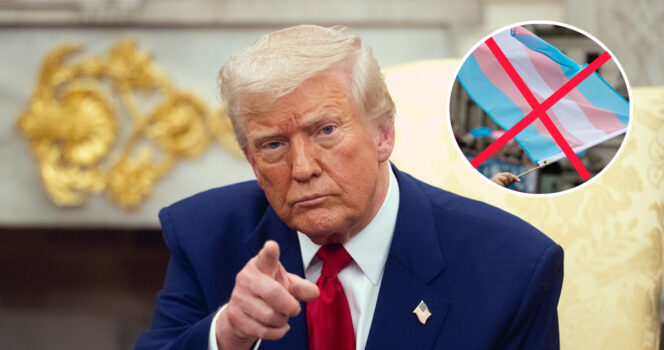Supreme Court Upholds Trump-Era Ban on Transgender Military Service Members
In a controversial decision that has ignited national debate, the U.S. Supreme Court ruled on May 6, 2025, to uphold an executive order signed by President Donald Trump that bans transgender individuals from serving in the U.S. military. The policy, originally introduced under the title “Prioritizing Military Excellence and Readiness,” prohibits transgender people from enlisting and mandates the removal of current transgender service members.
Trump’s Executive Order Sparks Legal and Civil Rights Battle
The executive order, signed just one week after Trump was sworn in as the 47th President of the United States in January 2025, immediately drew backlash from LGBTQ+ rights organizations and civil liberties groups. Two major LGBTQ legal organizations filed suit, arguing that the ban was unconstitutional and discriminatory.
In March 2025, U.S. District Judge Ana Reyes issued a temporary injunction, blocking the order. In her ruling, Judge Reyes stated that the ban violated the Equal Protection Clause of the Constitution and unjustly stigmatized transgender individuals serving or aspiring to serve in the military.
Supreme Court Greenlights Policy Amid Ongoing Legal Challenges
Despite the district court’s ruling, the Supreme Court’s 5–4 decision allows the Trump administration’s military ban on transgender individuals to take effect while lawsuits continue in lower courts. The ruling emphasized deference to military policy judgments, even amid constitutional concerns.
According to the administration, the ban is based on the belief that gender identity inconsistent with biological sex may hinder military readiness and unit cohesion—a claim widely disputed by military experts and human rights groups.
Civil Rights Advocates Respond
LGBTQ+ advocacy organizations, including Lambda Legal and the Human Rights Campaign (HRC), swiftly condemned the Supreme Court’s ruling. In a joint statement, they labeled the policy “deeply discriminatory, medically unsound, and rooted in prejudice rather than fact.”
“These service members have proven themselves capable and committed,” said HRC President Kelley Robinson. “This ruling is a step backward for equality, but we are confident the courts will ultimately reject this ban.”
Ongoing Legal and Political Ramifications
Legal analysts expect continued challenges in federal courts, and many predict that the issue could return to the Supreme Court. Meanwhile, public debate over the policy’s impact on military morale, legal rights, and national values is intensifying.







Leave a Comment